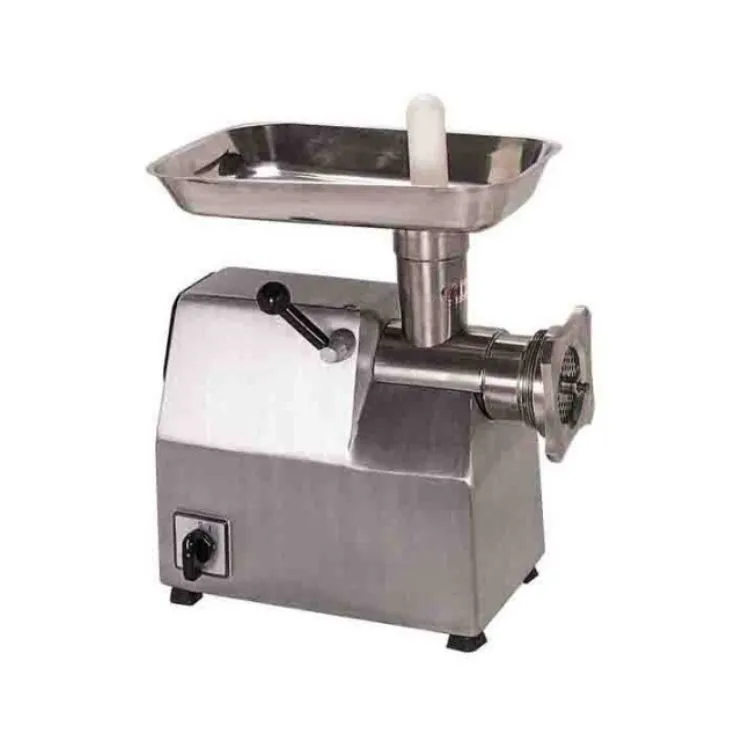How Keema Machines Revolutionize the Food Industry
In the fast-paced food industry, innovation is key to staying ahead of the game. Enter Keema Machines – the revolutionary technology that’s transforming the way we prepare and serve food. From restaurants to catering companies, Keema Machines are making waves with their cutting-edge features and unparalleled efficiency.
With a focus on precision and consistency, these machines streamline the process of making keema – a popular minced meat dish – by automating the grinding and mixing of various ingredients. This not only saves time and labor costs but also ensures a perfectly blended and flavorful end product every time.
Keema Machines are equipped with advanced technology, including powerful motors, sharp blades, and intuitive controls, making them user-friendly and highly efficient. Whether you’re a chef looking to optimize your kitchen operations or a food business owner aiming to deliver consistent quality, these machines are a game-changer.
With the ability to process large quantities of meat in a short time, Keema Machines are revolutionizing the food industry, increasing productivity, and reducing wastage. Say goodbye to manual labor and say hello to precision and consistency with Keema Machines – the ultimate innovation for the modern kitchen. Read More
Benefits of using keema machines in the food industry
In the fast-paced food industry, innovation is key to staying ahead of the game. Enter Keema Machines – the revolutionary technology that’s transforming the way we prepare and serve food. From restaurants to catering companies, Keema Machines are making waves with their cutting-edge features and unparalleled efficiency.
With a focus on precision and consistency, these machines streamline the process of making keema – a popular minced meat dish – by automating the grinding and mixing of various ingredients. This not only saves time and labor costs but also ensures a perfectly blended and flavorful end product every time.
How keema machines improve efficiency and productivity in the food industry
Keema Machines offer a plethora of benefits for businesses in the food industry. Let’s take a closer look at some of the key advantages:
- Improved efficiency and productivity
With Keema Machines, gone are the days of manually grinding and mixing meat for hours on end. These machines are equipped with powerful motors and sharp blades that can process large quantities of meat in a short amount of time. This not only speeds up the production process but also allows businesses to handle higher demand without compromising on quality.
The automated nature of Keema Machines also reduces the need for manual labor, freeing up staff to focus on other important tasks. This not only increases productivity but also reduces labor costs, making it a win-win situation for businesses.
- Consistency and quality control
One of the biggest challenges in the food industry is maintaining consistency in flavor and texture. Keema Machines solve this problem by ensuring a perfectly blended and flavorful end product every time. The precision and accuracy of these machines eliminate the risk of human error, resulting in consistent quality that customers can rely on.
By using Keema Machines, businesses can establish a reputation for delivering high-quality keema dishes that keep customers coming back for more. Consistency is key in the food industry, and these machines offer a reliable solution.
- Reduced wastage
Wastage is a significant concern in the food industry, both in terms of ingredients and time. Keema Machines help reduce wastage by optimizing the grinding and mixing process. These machines ensure that every ingredient is utilized effectively, minimizing the amount of meat that goes to waste.
Additionally, the time saved by using Keema Machines allows businesses to operate more efficiently, reducing the risk of food spoilage and expiration. This not only saves money but also contributes to a more sustainable and environmentally friendly operation.
Maintenance and cleaning tips for keema machines
Keema Machines are designed with efficiency and productivity in mind.
- Automated grinding and mixing
The manual process of grinding and mixing meat can be time-consuming and labor-intensive. Keema Machines automate this process, allowing businesses to produce large quantities of keema in a fraction of the time. The powerful motors and sharp blades of these machines ensure quick and efficient grinding, resulting in a consistent texture and flavor.
By eliminating the need for manual labor, Keema Machines optimize kitchen operations, allowing staff to focus on other important tasks. This not only improves efficiency but also reduces labor costs, making it a smart investment for businesses.
- User-friendly controls
Keema Machines are designed with user-friendly controls that make them accessible to chefs and kitchen staff of all skill levels. The intuitive interface and simple operation ensure that anyone can operate these machines with ease.
The controls allow for precise adjustments, enabling chefs to achieve the desired texture and consistency of the keema. This level of control enhances the overall quality of the end product and gives businesses the ability to cater to different customer preferences.
- Easy maintenance and cleaning
Maintenance and cleaning are important aspects of any kitchen equipment. Keema Machines are designed to be easy to maintain and clean, ensuring that they remain in optimal condition for long-term use.
Regular cleaning and maintenance not only extend the lifespan of these machines but also ensure hygienic food preparation. Proper care and maintenance of Keema Machines contribute to a safe and efficient kitchen environment.
Factors to consider when purchasing a keema machine
Proper maintenance and cleaning are crucial for the longevity and efficiency of Keema Machines.
- Regular cleaning
After each use, it is important to clean the machine thoroughly to remove any food residue. Use warm soapy water and a soft brush to clean the grinding attachments and other removable parts.
Avoid using abrasive cleaners or harsh chemicals, as they can damage the machine. Rinse all parts thoroughly and allow them to dry completely before reassembling the machine.
- Lubrication
Regular lubrication of the machine’s moving parts is essential to ensure smooth operation. Use food-grade lubricant or oil recommended by the manufacturer. Apply a small amount to the necessary areas and follow the manufacturer’s instructions for proper lubrication.
- Inspection and maintenance
Regularly inspect the machine for any signs of wear or damage. Check the blades, motors, and other components for any signs of wear and tear. Replace any damaged or worn parts immediately to prevent further damage to the machine.
Follow the manufacturer’s recommended maintenance schedule and guidelines to keep the machine in optimal condition. Regular maintenance will prolong the lifespan of the machine and ensure consistent performance.
Why Choose Us
Choosing the right Keema Machines for your business is essential for optimal performance and efficiency.
- Capacity
Consider the capacity of the machine and choose one that meets the needs of your business. Assess the quantity of keema you’ll need to produce on a regular basis and choose a machine that can handle the required volume.
- Power and performance
Look for machines with powerful motors and sharp blades for efficient grinding and mixing. Consider the speed and performance of the machine to ensure it can handle the demands of your business.
- Durability and build quality
Invest in a machine that is built to last. Look for sturdy construction and high-quality materials that can withstand the rigors of daily use. A durable machine will provide long-term value and require less frequent maintenance or replacement.
- Brand reputation and customer reviews
Research different brands and read customer reviews to get an idea of the reputation and reliability of the machine. Look for brands that are known for their quality and customer satisfaction.
- Budget
Consider your budget and choose a machine that offers the best value for money. While it’s important to invest in a high-quality machine, it’s also essential to find one that fits within your budget.

